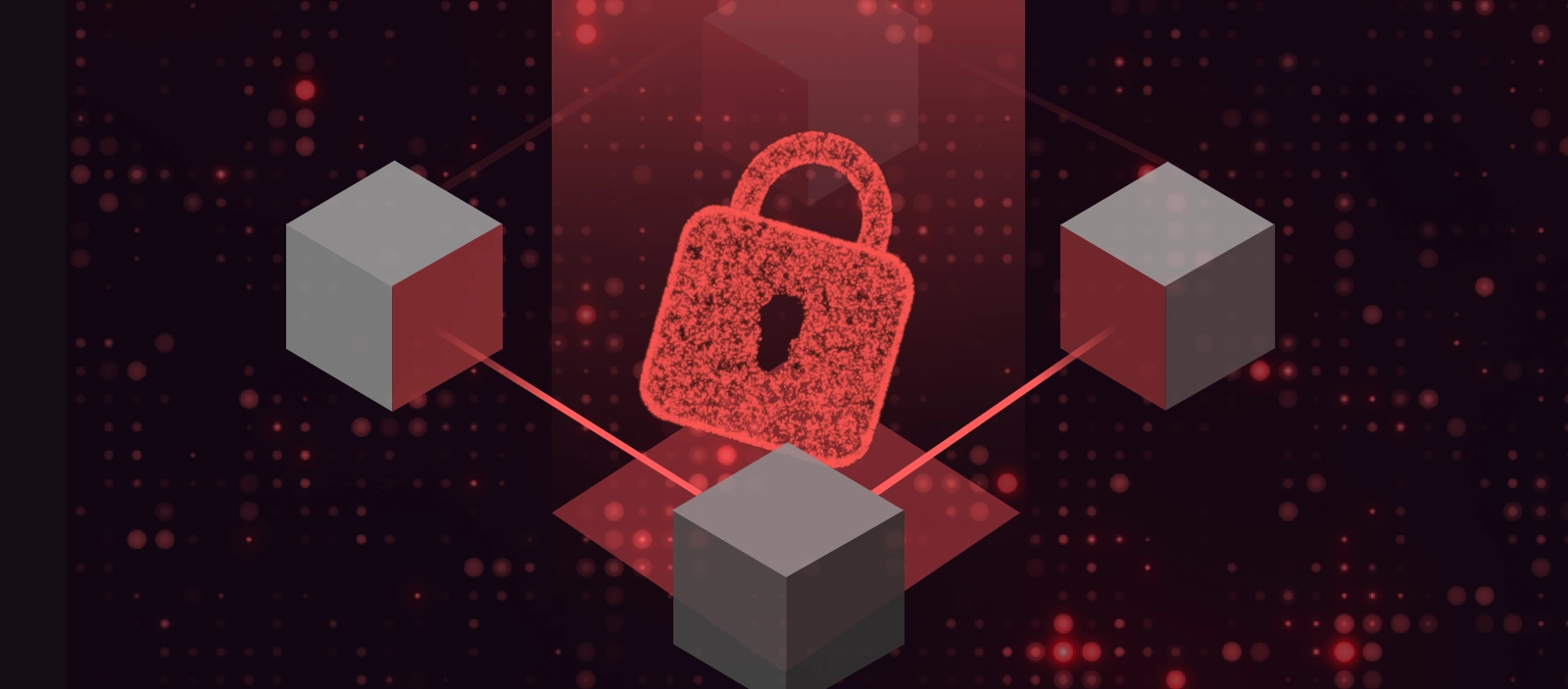Reflecting on 2024: Trends and Lessons in Blockchain Security
The year 2024 will be remembered as an essential moment for technology and finance – a year defined by the relentless hype around artificial intelligence, groundbreaking advancements in web3, and the unprecedented peak of tokenization. At the same time, the rise of Decentralized Physical Infrastructure Networks (DePIN) signaled a shift in how ecosystems are built and interconnected. Yet, amidst this wave of innovation, one constant remained: DeFi continued to dominate. And wherever there are funds and tokens, threats inevitably follow.

For Blaize.Security, 2024 was another milestone year. Our team conducted an impressive 92 audits, solidifying our role as a trusted partner in safeguarding the rapidly evolving web3 landscape. Each audit added to our collective expertise and provided invaluable insights into the patterns and challenges that will shape the future of blockchain security.
As we reflect on this transformative year, it becomes clear that the trends we’ve witnessed will not only persist but intensify in 2025. From the ever-expanding scope of protocol security to the deep integration of zero-knowledge technologies and cross-chain interoperability, Blaize.Security has been at the forefront, adapting to and securing this dynamic ecosystem.
The Expanding Definition of a Protocol: Beyond Smart Contracts
In 2020, Chainlink introduced the concept of “hybrid contracts,” foreseeing a future where smart contracts would no longer operate in isolation but instead rely heavily on external off-chain services. Fast forward to 2024, and this vision has become a reality. Modern protocols are far more than just smart contracts; they are complex systems that integrate diverse components to achieve their full functionality. This evolution has redefined how protocols are built and, consequently, how they must be secured.
Today’s smart contracts extend their logic well beyond the blockchain, relying on critical off-chain infrastructure and services. Here’s a breakdown of how protocols have grown in complexity:
- Access Control and Security: Secure private key storage has become a foundational requirement for admin-level actions. Many protocols rely on multisignature (multisig) infrastructures to distribute control and minimize risks. These components ensure that sensitive operations are conducted with robust safeguards in place, mitigating risks of unauthorized access.
- Oracle Dependency: Almost every DeFi protocol integrates oracles, whether for price feeds, random number generation (via VRFs), or other external data feeds. Each oracle itself represents a sophisticated system, often aggregating data from multiple sources through TWAP (time-weighted average price) mechanisms or relying on third-party price feeds. The reliability and security of oracles are now critical to the functioning of DeFi systems.
- Automated Processes: Protocols often require the ability to trigger repetitive or time-sensitive actions, such as liquidations, rebalances, or scheduled payouts. To achieve this, many leverage third-party solutions like OpenZeppelin Defender or develop their own custom automation tools. These services ensure smooth operations but introduce additional attack vectors that must be scrutinized.
- Active Monitoring and Response: Security is no longer a passive concern. Modern protocols integrate active monitoring systems to detect and respond to threats in real time. Tools from partners like CyVers and Drosera provide continuous surveillance, anomaly detection, and instant alerts, enabling protocols to mitigate risks before they escalate.
- Cross-Chain Interoperability: As ecosystems expand, cross-chain interactions have become the norm. Protocols frequently integrate with interoperability solutions such as LayerZero or Wormhole to enable seamless asset transfers and messaging between blockchains. These integrations are critical for ecosystem scalability but introduce new layers of complexity that must be secured.
- Advanced Features Like Account Abstraction and Meta-Transactions: Account abstraction and meta-transactions are pushing the boundaries of user experience and protocol design. These innovations enhance usability by allowing more flexible transaction models, but they also demand a deep understanding of the underlying mechanics to prevent exploitation.
This growing sophistication means that protocol audits can no longer be limited to analyzing Solidity codebases. The role of an auditor has evolved to require cross-functional expertise across blockchain ecosystems, a solid foundation in cybersecurity, and familiarity with the latest web3 technologies. Today’s auditors must be capable of:
- Assessing Cross-Chain Messaging Protocols: Solutions like Wormhole and LayerZero introduce new risks and dependencies. Auditors must evaluate these integrations meticulously.
- Understanding Oracle Security: Analyzing oracle mechanisms, data aggregation processes, and third-party feeds is critical to ensure that data dependencies cannot be exploited.
- Monitoring Active Protection Systems: Auditors need to build invariants and assess the integration of tools like CyVers and Drosera for real-time threat detection.
- Adapting to Hybrid Contract Models: With Chainlink CCIP concepts and similar innovations, auditors must understand the interplay between on-chain and off-chain components to identify potential vulnerabilities.
As protocols grow increasingly interconnected and reliant on external systems, audits are becoming a multidisciplinary effort. Securing these modern systems requires not just technical expertise but also a holistic understanding of how each component contributes to the protocol’s overall functionality and security. At Blaize.Security, we’ve adapted to this evolution, ensuring that our audit processes are as dynamic as the systems we protect.
Tokenization Reaches Its Peak
Tokenization has reached new heights in 2024, transforming how assets are created, managed, and traded. Initially focused on cryptocurrencies, tokenization has expanded to represent a diverse range of real-world and digital assets. This evolution has unlocked unprecedented opportunities for fractional ownership, liquidity, and market accessibility.
Meanwhile explore Blaize article on various aspects of tokenization.
From tokenized real estate and art to intellectual property and financial instruments, blockchain technology now serves as the backbone for securely digitizing assets. By embedding transparency, traceability, and provenance, tokenized ecosystems are reshaping traditional industries. Projects like Digital Original and Brainstarter highlight the innovation in this space:
- Digital Original is revolutionizing how art and collectibles are verified and traded by ensuring the authenticity and uniqueness of tokenized items. Blaize.Security’s audit of the platform safeguarded its infrastructure, enabling secure ownership and trade.
- Brainstarter empowers creators to tokenize their projects for crowdfunding, offering transparency and security for both investors and innovators. Our audit ensured the platform’s smart contracts are robust and capable of handling tokenized investments securely.
These examples illustrate how tokenization has expanded far beyond traditional crypto projects, creating new avenues for creators, investors, and businesses.
While tokenization offers immense opportunities, it also brings security challenges, such as complex smart contract ecosystems and fraud prevention. Blaize.Security has remained at the forefront, conducting audits to mitigate risks and support the growth of secure tokenized platforms.
2024 has proven that tokenization is not merely a trend but a transformative force reshaping how we interact with assets and markets. As this technology matures, Blaize.Security is committed to securing the foundations of this dynamic, rapidly evolving sector.
Ecosystem Growth: From Solana to Sui and Cosmos
The blockchain landscape in 2024 has been marked by significant growth and diversification, with ecosystems like Solana, Sui, and Cosmos experiencing notable advancements.
Solana: Sustained Momentum
Solana has maintained its position as a leading blockchain ecosystem, accounting for 38.8% of global crypto investor interest in chain-specific narratives.
In Q3 2024, Solana’s DeFi Total Value Locked (TVL) increased by 26% to $5.7 billion, ranking it third among networks.
The developer community has also expanded, with over 3,300 active developers as of Q4 2023, representing a 10x growth since 2020.
Sui: Emerging Contender
Sui has rapidly gained traction, capturing 4.8% of global investor interest in 2024.
The ecosystem has attracted projects like Cetus, a leading liquidity provider, indicating a vibrant and growing developer community.
Cosmos: Steady Expansion
The Cosmos ecosystem holds a 2.5% share of global investor interest.
Its modular framework and emphasis on interoperability have attracted a diverse range of projects, contributing to its steady growth.
Blaize.Security’s Role
At Blaize.Security, we’ve been actively involved in auditing and securing projects across these ecosystems.
Our Rust, Move, and Golang teams have deepened their expertise to meet the unique challenges presented by each platform, ensuring robust security measures are in place to protect the integrity of these rapidly evolving networks.
The dynamic growth of ecosystems like Solana, Sui, and Cosmos underscores the importance of specialized security expertise.
As these platforms continue to evolve, Blaize.Security remains committed to providing comprehensive security solutions tailored to the specific needs of each ecosystem, fostering a safer and more resilient blockchain environment.
Zero-Knowledge: The New Norm in Web3
Zero-knowledge (zk) technology has rapidly evolved into a core component of blockchain innovation in 2024, with its applications revolutionizing Layer 2 scalability, privacy, and decentralized AI. Zk-rollups are leading the charge in scaling Ethereum, enabling faster, cost-efficient transactions by batching operations off-chain and validating them through zk-proofs. At the same time, zk technology is transforming privacy in web3, allowing users to transact and interact confidentially while maintaining the integrity of trustless verification. In the decentralized AI sector, zk technology ensures secure data pipelines, protecting the integrity and confidentiality of sensitive data during processing.
At Blaize.Security, we’ve adapted to this shift by equipping our team with the expertise needed to secure zk-driven systems. This includes rigorous training in zk-SNARKs, zk-STARKs, and other proof systems, as well as hands-on experience auditing critical zk applications. Our work spans the evaluation of zk-rollup implementations, ensuring they deliver scalable and secure solutions, and the analysis of privacy-preserving protocols to uncover vulnerabilities in confidential transactions.
Moreover, as zk technology extends into decentralized AI, we’ve focused on securing data pipelines, validating zk-proofs in AI models, and safeguarding privacy in data handling. Our auditors also design invariants to monitor zk systems over time, ensuring they remain resilient and uncompromised as they scale.
Read More: Blaize comprehensive guide into decentralized artificial intelligence.
Zero-knowledge technology is no longer a niche innovation – it is becoming a foundational element of web3. With its widespread adoption comes greater complexity and heightened security challenges. At Blaize.Security, we are committed to staying ahead of these challenges, ensuring zk-powered projects are not only innovative but also secure, robust, and future-proof.
Emerging Trends: What Lies Ahead
Breaking Cross-Chain Boundaries
Interoperability solutions like Wormhole, LayerZero, and Axelar are eliminating blockchain silos, enabling seamless asset transfers and communication across chains. These advancements are pivotal for ecosystem scalability and require auditors to evaluate interchain messaging protocols and integration risks.
DePIN Evolution
DePINs are transforming protocols into full-fledged ecosystems, building on-chain layers for storage, connectivity, and tokenized infrastructure. This shift integrates the digital and physical worlds, demanding new security approaches.
Rise of dApp Chains
Layer 2 scaling solutions are evolving into application-specific chains, particularly in the Cosmos ecosystem, where projects like Osmosis exemplify streamlined, interoperable dApp-focused blockchains. These chains enhance scalability while presenting unique security challenges.
Growth of Sui and Cosmos
While Solana remains strong, Sui and Cosmos are rapidly expanding. Sui’s Move-based architecture and Cosmos’s modular framework attract diverse projects, highlighting the need for specialized audits. Blaize.Security has played a key role in securing protocols across these ecosystems.
Zk Technology Goes Mainstream
Zero-knowledge (zk) technology is now essential for web3, driving innovations in Layer 2 rollups, privacy, and decentralized AI pipelines. Blaize.Security’s auditors are trained to secure zk implementations, ensuring scalability, privacy, and data integrity.
AI Meets Blockchain
Decentralized AI requires robust security for data pipelines and AI/ML models. Blaize.Security helps projects integrate AI with zk technology, ensuring secure data processing and model training.
Closing Remarks
2024 has been a landmark year for blockchain technology, characterized by advancements in interoperability, ecosystem growth, and the integration of cutting-edge innovations like zk-technology and decentralized AI. As web3 continues to evolve, the challenges and complexities surrounding security will only deepen.
At Blaize.Security, we’ve embraced these trends by expanding our expertise across ecosystems and technologies:
- From securing cross-chain messaging with Wormhole, LayerZero, and Axelar to auditing dApp chains in Cosmos and Sui, we’ve adapted to the rapidly changing demands of blockchain infrastructure.
- Our focus on zk-technology and cryptographic advancements has positioned us as leaders in securing Layer 2 solutions, privacy protocols, and AI data pipelines.
- By investing in the training of our auditors and deepening our understanding of emerging technologies, we ensure that our clients are protected in an ever-evolving landscape.
The future of web3 is one of boundless possibilities, but it also demands unparalleled vigilance. Blaize.Security remains committed to safeguarding this future, ensuring that as web3 grows, it does so securely and sustainably. The challenges of tomorrow are opportunities for us to innovate, protect, and lead in the decentralized world.





